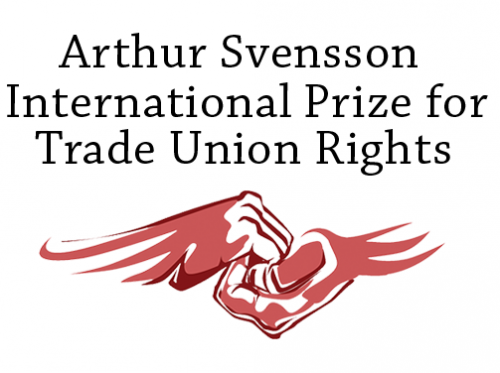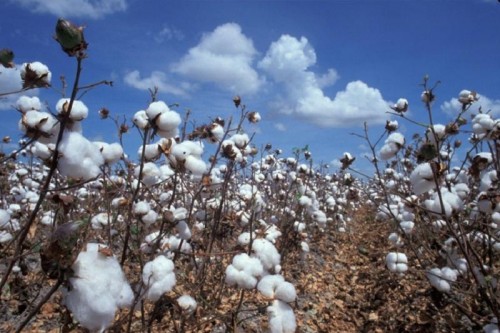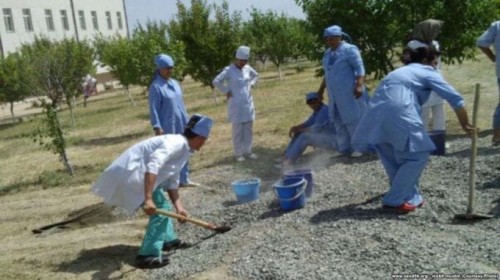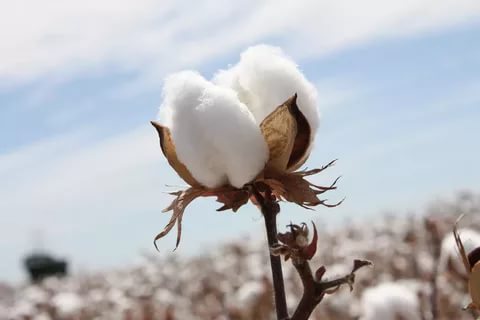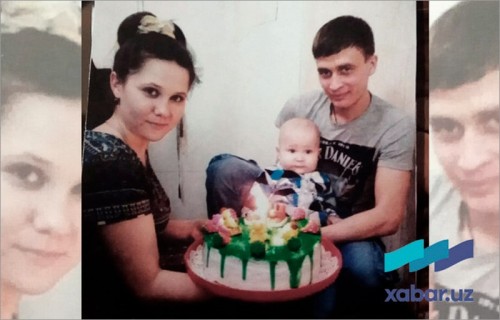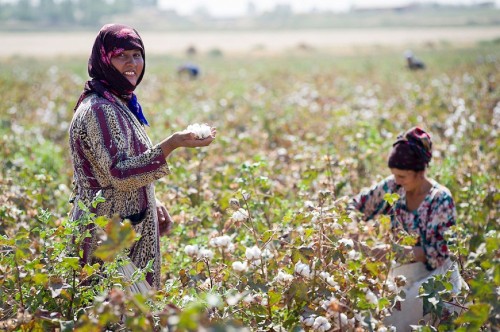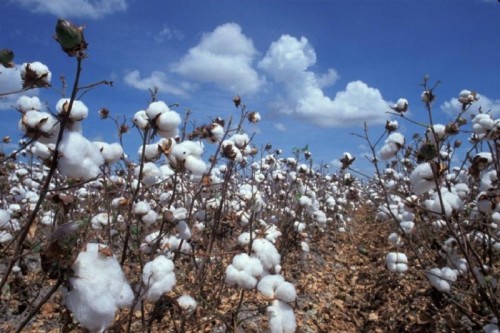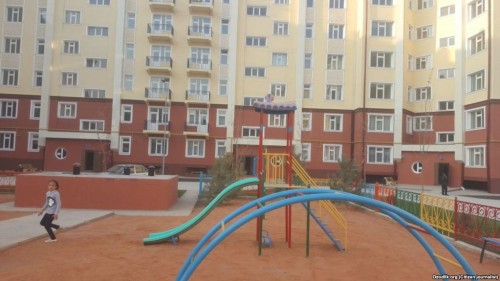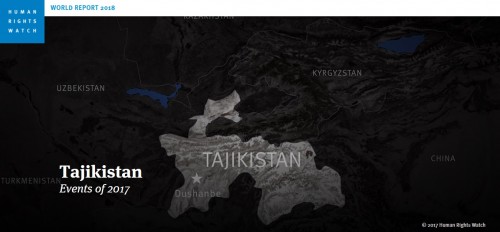Countries
Solidarity campaigns
13 August 2024
Georgia: Support striking workers at Evolution Gaming
5 June 2023
Georgia: Justice for Wolt couriers
10 May 2023
Belarus: Trade union activity is not extremism!
2 November 2019
Kazakhstan: Trade unionist Erlan Baltabay imprisoned - again!
19 November 2018
Kazakhstan: Stop repression and physical attacks on leaders of independent unions; hands off Larisa Kharkova, Erlan Baltabai and Dmitriy Senyavskiy
18 April 2018
MALOKHAT STILL NEEDS YOUR HELP
News
26 April, 2018 / kazakhstan
Solidarity award to persecuted unions in Kazaksthan
The Arthur Svensson International Prize for Trade Union Rights this 2018 is awarded to the Independent Trade Unions of Kazakhstan, represented by Larisa Kharkova, Nurbek Kushakbaev and Amin Eleusinov. Trade Union leaders and activists of Kazakhstan face severe repression in due to their involvement with trade unions rights, and the rights of the working people in their country.
24 April, 2018 / uzbekistan
Teachers: Cotton is the most painful issue for us
On April 21, the issue of forced labor among teaching professionals was discussed live on Uzbekistan’s main television channel. Speakers discussed a conference which took place on April 17, during which Prime Minister Abdulla Aripov severely chastised ministers of education and public health for forcing doctors and teachers to pick cotton, scrap metal, clean streets and carry out other “public” activities not related to their work.
18 April, 2018 / uzbekistan
Shavkat Mirziyoyev: “Deception is Betrayal”
The President of the Republic of Uzbekistan, Shavkat Mirziyoyev, claimed that he is perfectly aware of the real situation in the regions and said that putting everything in order before his visits does more harm than good. The President threatened hokims [ed. – local governors] with severe consequences for forcing teachers to participate in beautification works and said it amounted to betrayal to force the involvement of employees in the public sector.
12 April, 2018 / uzbekistan
State lifts restrictions on Uzbek human rights defender Forced labor monitor Uktam Pardaev has terms of his probation lifted in Uzbekistan
The Cotton Campaign welcomes the decision of a court in Uzbekistan to lift the terms of probation for human rights defender Uktam Pardaev 10 months early. Pardaev was arrested on November 16, 2015, following his reporting on forced labor during the 2015 cotton harvest. The Uzbek authorities released Pardaev on January 30, 2016, after convicting him to a 5 years 6 months prison term on fabricated charges, and subsequently changing the sentence to 3 years’ probation. Under probation, Pardaev had to register with the police twice a month, and had to obtain police permission to leave his hometown of Jizzak or leave his home after 10 pm.
22 March, 2018 / uzbekistan
Investigation by «Xabar.uz»: Who is to blame for the death of a 23-year-old teacher?
The death of a 23-year-old female teacherShe didn’t simply die. She was run over by a Kamaz lorry. A handicraft teacher at school No 42 in Kattakurgan District, 23-year-old Diana Enekeeva (or Inikova, according to first reports) was a victim of forced labor, although some may say it was voluntary.
14 February, 2018 / uzbekistan
How to increase the efficiency of the agricultural land use
Starting 2022, the farm land lease agreements will be terminated with those farms which did not develop multifunctional operations. Farmers who used their land inefficiently may lose it. Yuliy Yusupov, an independent expert in economics, comments on the latest decree on agriculture.
01 February, 2018 / turkmenistan
Turkmenistan: 2017 Findings of Forced Labor Monitoring during Cotton Harvesting
Despite Turkmenistan’s international commitments to suppress the use of forced or compulsory labor in all its forms, in 2017 the government continued to mobilize tens of thousands of civil servants to pick cotton under threat of dismissal. For the first time in a decade, the authorities have also mobilized masses of children to pick cotton
23 January, 2018 / kyrgyzstan
Report on the results of the Youth March to Support Women’s Rights Protection in Kyrgyzstan within the framework of the International Women's March worldwide campaign to support women’s rights around the world
On January 20, 2018 at 3 p.m. at the monument of Urkuya Saliyeva (at the crossing of Chui ave. and Sovetskaya street) young leaders-volunteers of the "Human Rights Movement: Bir Duino Kyrgyzstan" held a peaceful march in honor of the protection of women's rights in Kyrgyzstan. The purpose of this march was a vivid demonstration of disagreement between young people and unfair situations happening at the moment in the country: early marriages, bride kidnapping, polygamy, pedophilia, family and sexual violence, harassment at work, slavery and human trafficking. This action was also timed to coincide with the celebration of the 70th anniversary of the UN Universal Declaration of Human Rights and the International Women's March, which was held around the world on January 20-21, 2018.
23 January, 2018 / uzbekistan
Female nurses in Tashkent are forced to clean in low-income houses for free
In Tashkent, female employees of health clinics, schools, and kindergartens are forced to clean in low-income houses in the Sergeli district for free. Nurses complain that otherwise they are threatened with dismissal and withholding from their wages.
18 January, 2018 / tajikistan

